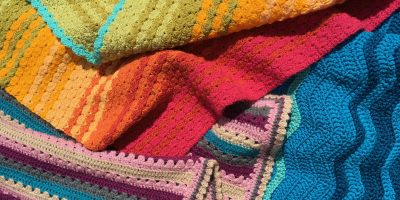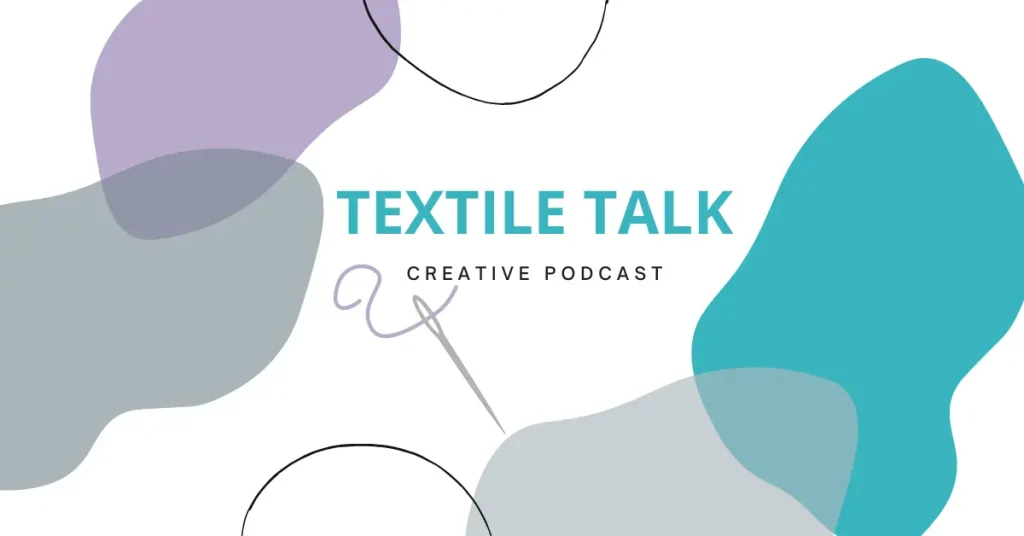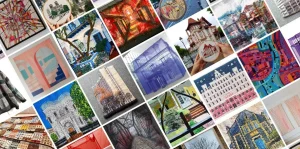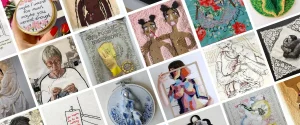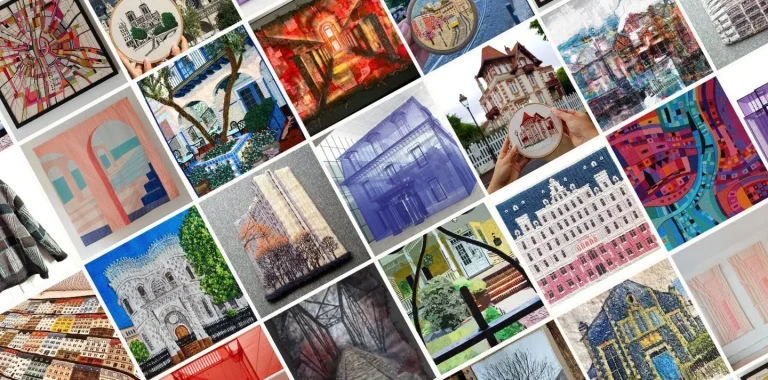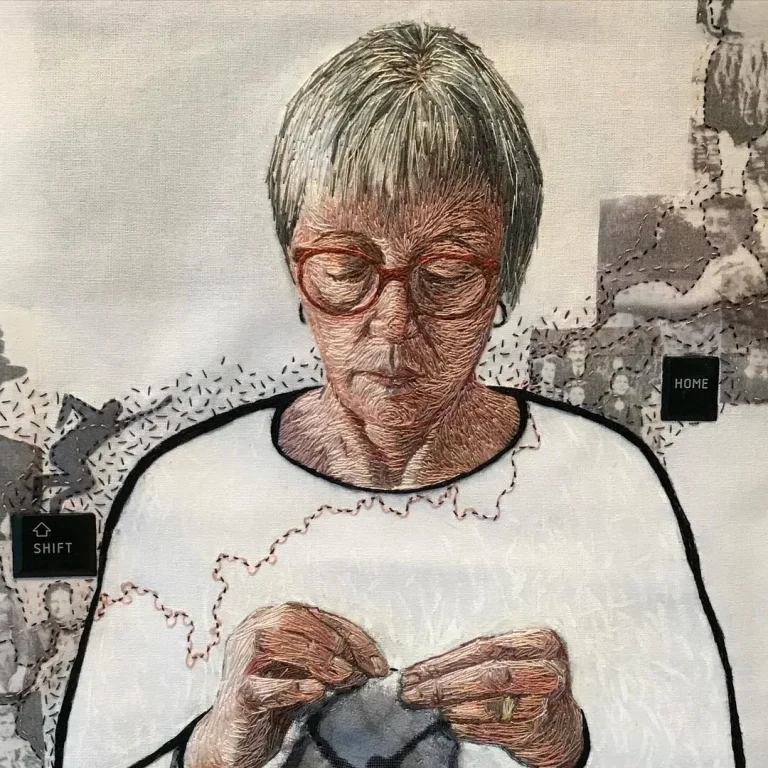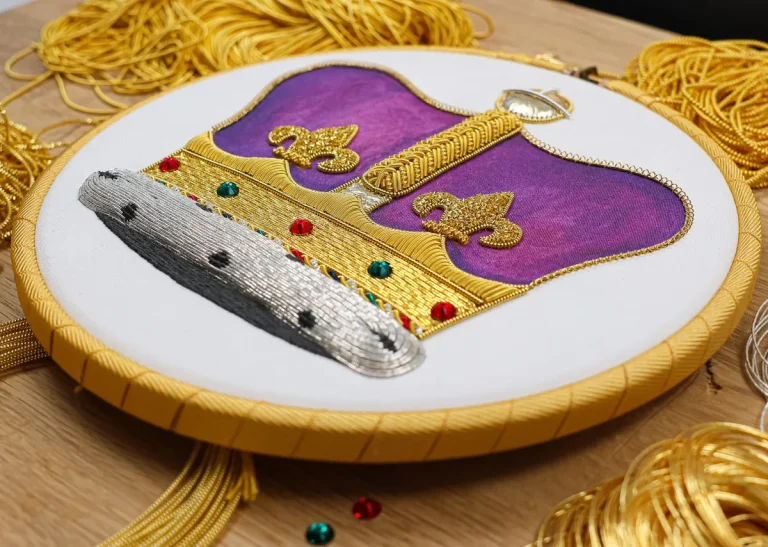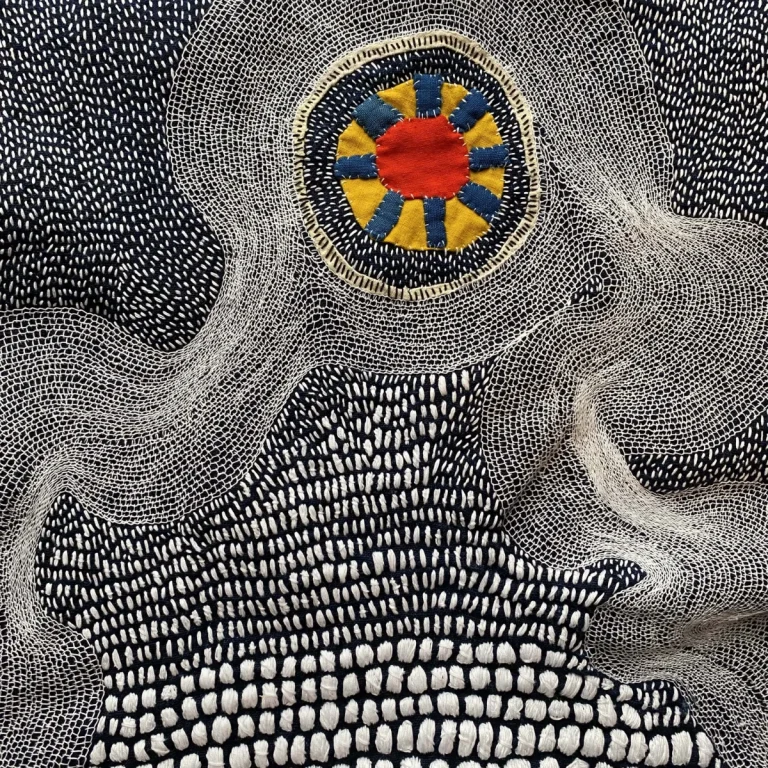Step into the captivating world of Cécile Davidovici, where threads weave tales of time, creating wistful reminiscences. Nestled in the heart of Paris, this embroidery virtuoso transforms mere fabric and thread into mesmerising narratives that dance between stillness and vibrancy.
Cécile Davidovici is truly able to sew life into her art. Melons gleam under the soft glow of candlelight, wine glasses shimmer with an ethereal allure, and hands and faces exude a palpable warmth reminiscent of sunsets.
Yet, beneath the surface of her art lies a journey of evolution and experimentation. Departing from her earlier works, Davidovici embarked on a quest to capture the essence of portraits, a pursuit that led her to the uncharted territories of embroidery. “I’ve always wanted to do portraits,” she confesses, “and I finally succeeded in a way that spoke to me by working and experimenting a lot with embroidery. I love the idea of pushing the technique to places it’s never been before.”
This relentless pursuit of innovation culminated in her ground-breaking series, La Vie Silencieuse, or The Silent Life, where modernity and tradition converge in a captivating dialogue. Collaborating with artist David Citborsky, each composition sprang to life as 3D models before Davidovici meticulously translated them into threads, infusing the stillness of classical subjects with a contemporary vitality.
We had the wonderful pleasure of catching up with Cécile Davidovici to learn more about her experience and technique. Take a look at her stunning work and get ready to feel truly inspired.
Cécile Davidovici
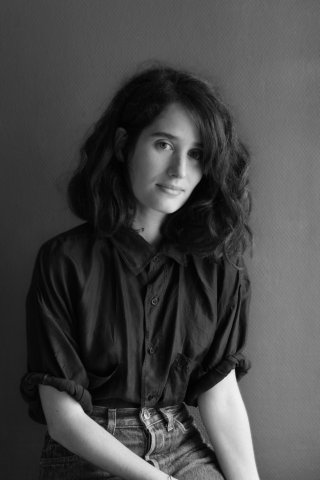
“I would advise everyone to experiment until you find your own personal voice. Learn from what has been done before and embrace it. Go to museums and movies. Textiles is so versatile and quite on trend now. That’s a wonderful opportunity, not to be missed.”
How did you find your way to working with textiles and embroidery?
I studied cinema, a field in which I worked for several years, first on film shoots and then on my personal projects as a writer/director. When my mother died a few years ago, I realised that I could no longer continue to express myself in the same way. My stories had to take on a new form. It took a while.
I was trying different mediums in my spare time for fun and then one day I tried embroidery. My love for this medium was almost immediate. The act of being able to touch what you’re creating, of being able to build with my hands, immediately gave me what I’d been missing.
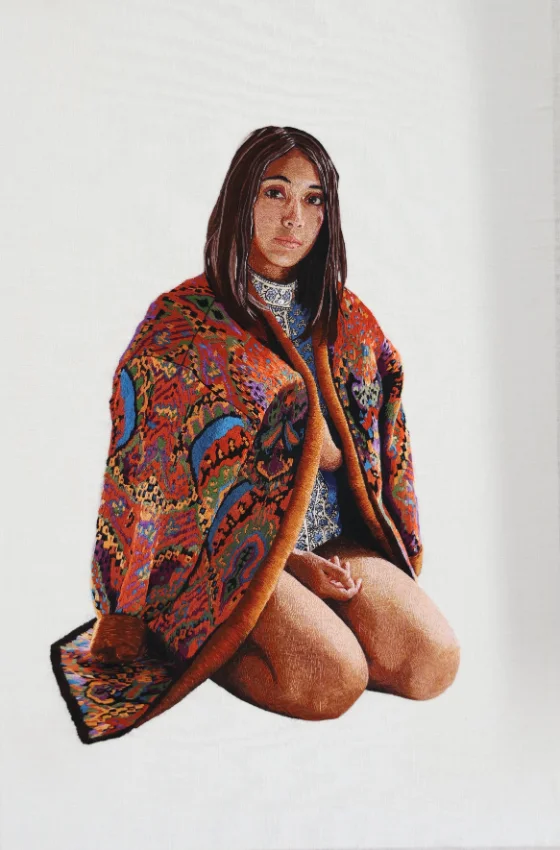
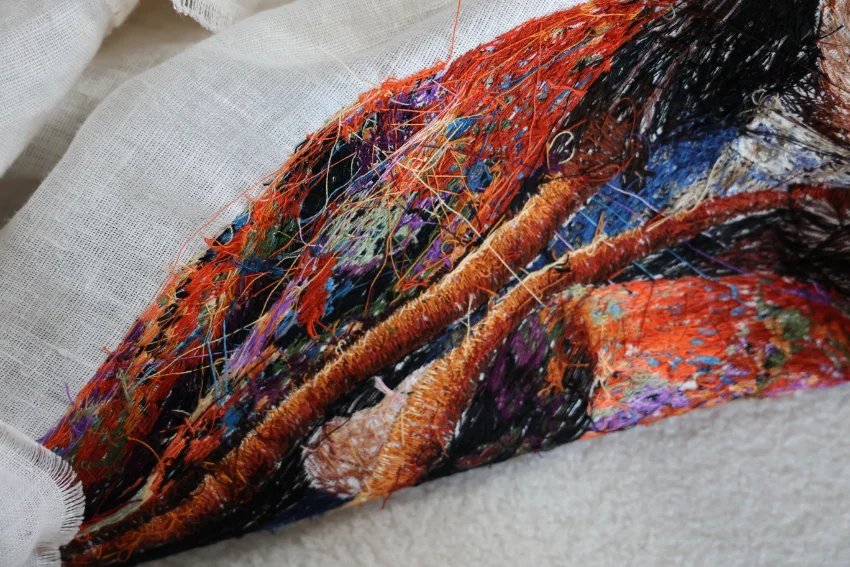
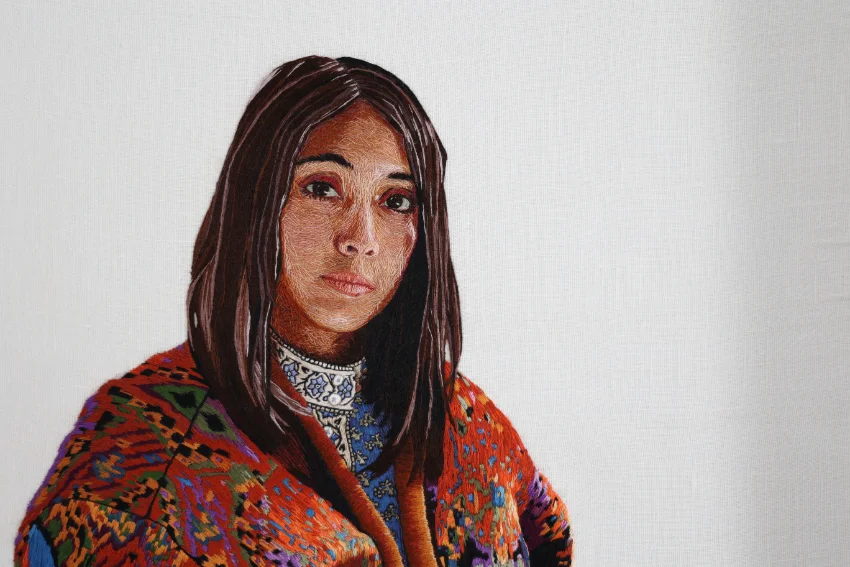
What are you currently working on?
I’m currently between big projects so let me tell you about our last series, La vie silencieuse, which was a collaboration with another artist named David Ctiborsky. This series was a series of still life that we exhibited last October in Paris. The way we work was quite special. David created the images with a 3D software and I then embroidered them.
We were very inspired by Giorgio Morandi’s work and his ability to make silence vibrate. We wanted to embroider objects as if they were alive. All the pieces are embroidered with cotton threads on vintage bedsheets.
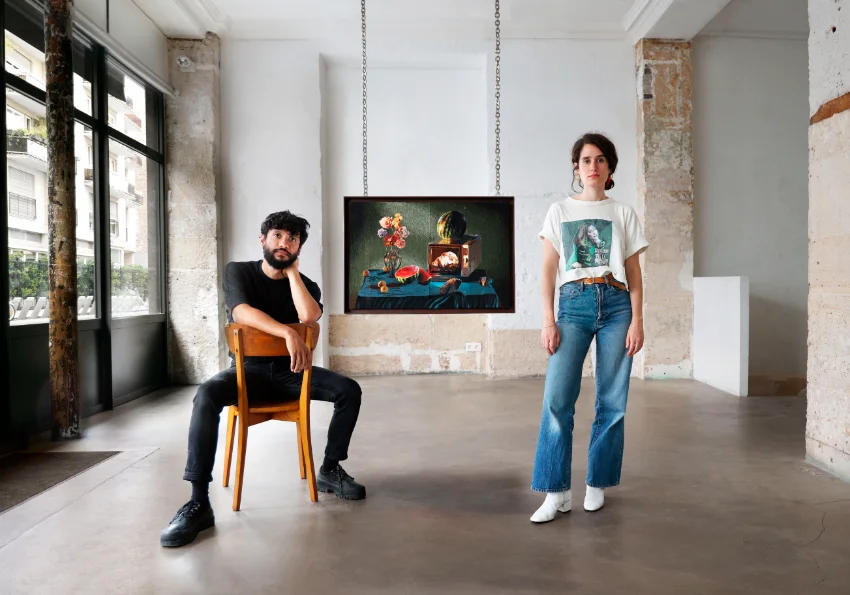
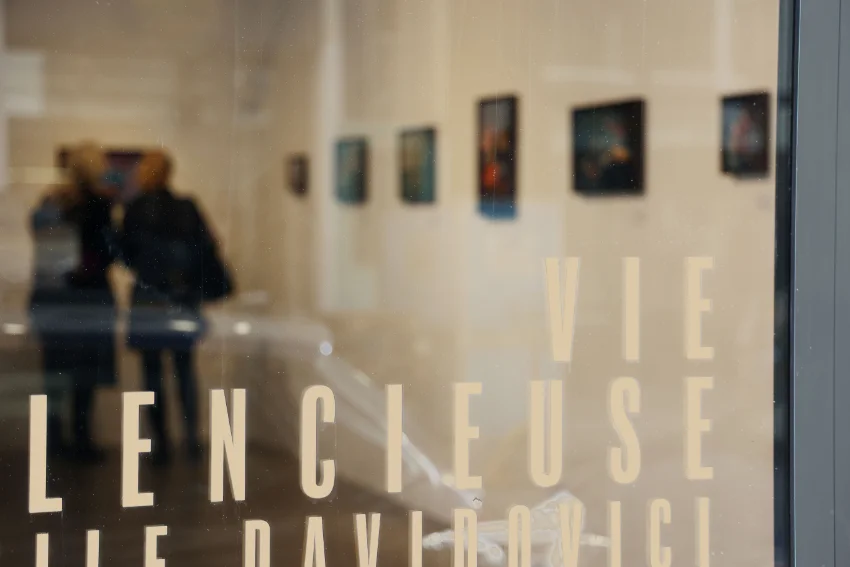
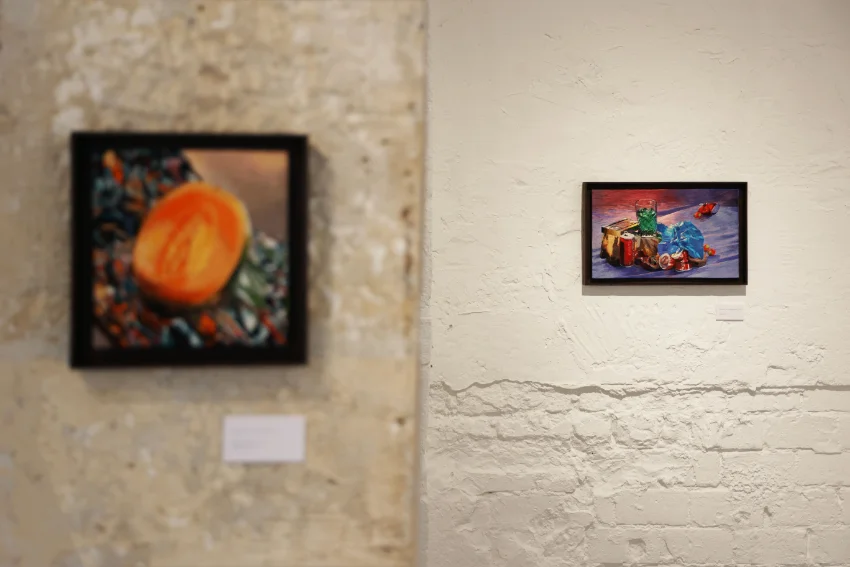
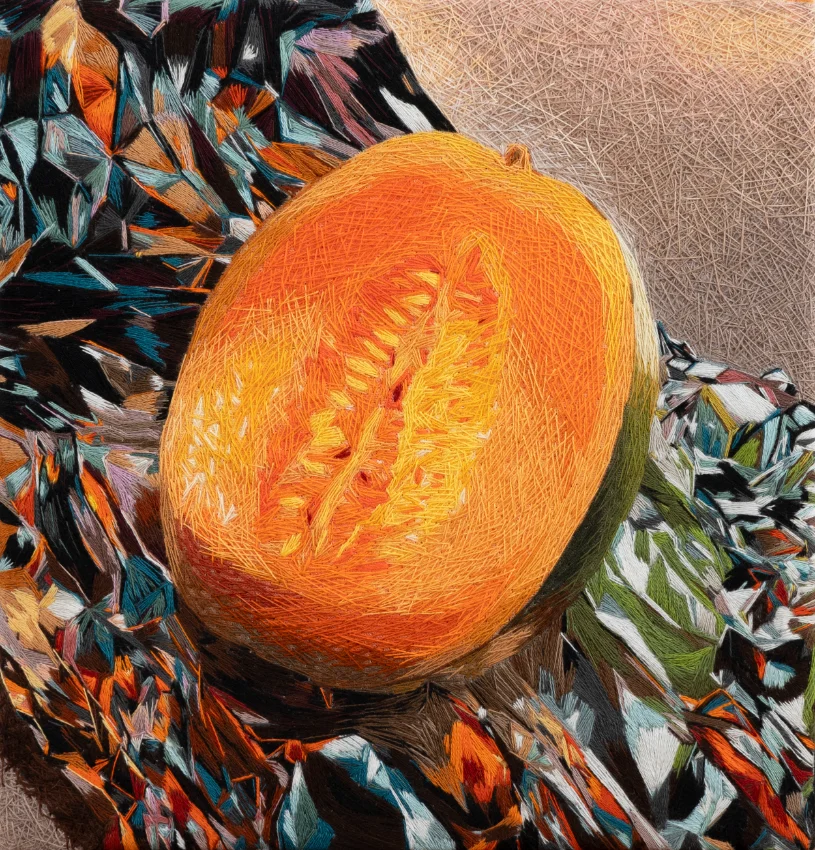
What was your first memory of stitching – who taught you?
I’m completely self-taught but I do remember my grandmother teaching me and my cousin to sew little pillows when I was a child. A sweet memory. My personal technique really came from experimenting and playing with the medium, trying to make it my own.
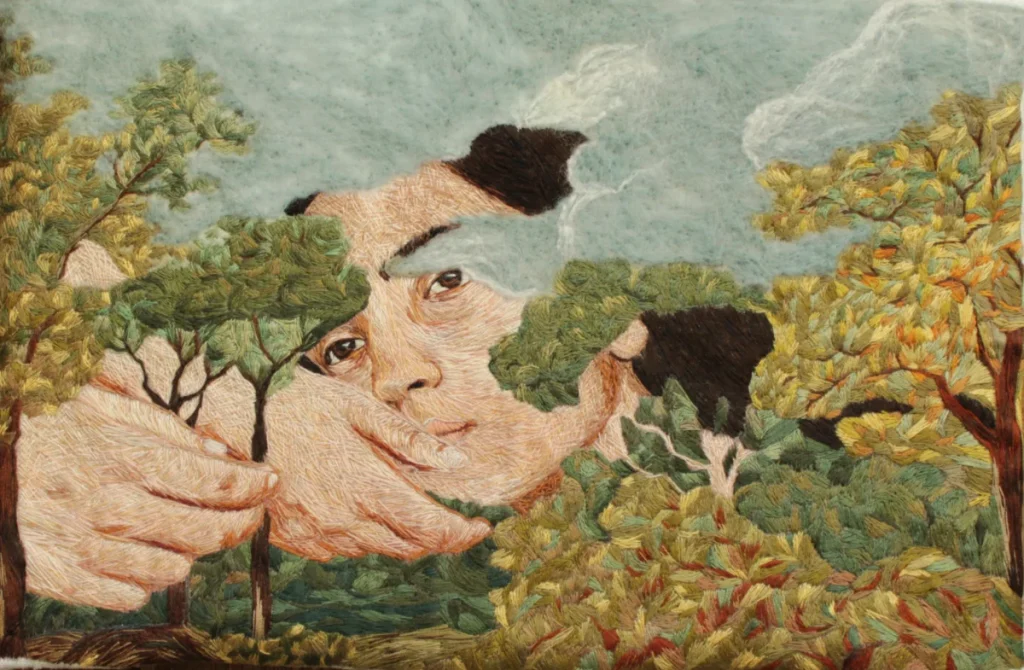
Your work is incredibly realistic, especially with your treatment of the human form, with so much care given to hands, faces etc. Is there a reason why you enjoy this particular subject area?
I’ve been drawn to portraits and skin for a long time before I could represent them in a way that was convincing to me. I find it so fascinating how the skin has so many colours and I wanted to be able to represent this in the most honest way. I am also very inspired by women in general, so it was very natural for me to represent them in my pieces.
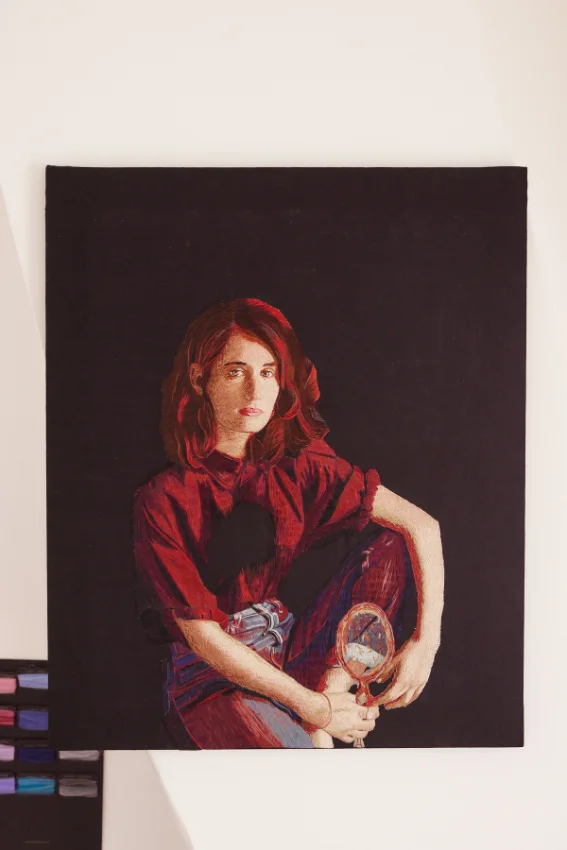
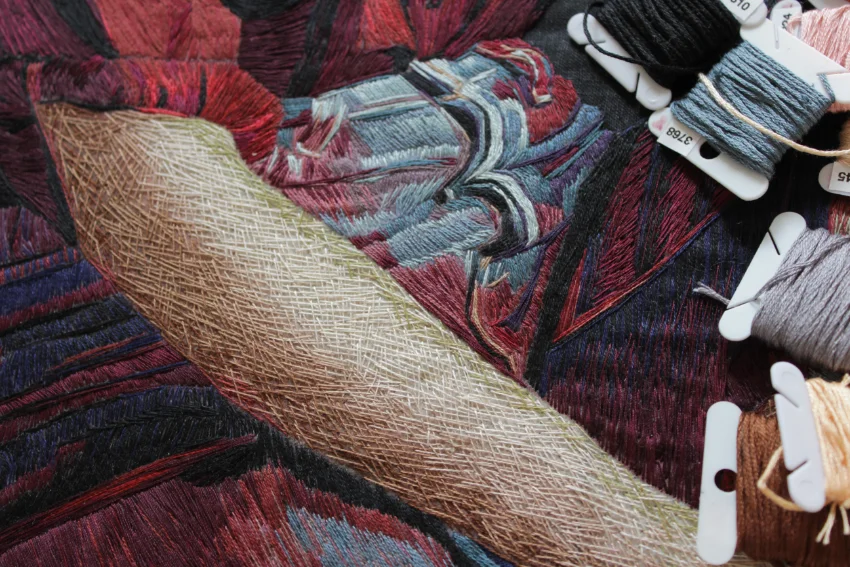
How much did your study of theatre and drama shape the artist you are today?
It shaped my apprehension of storytelling for sure but I don’t know if it has an impact today on the work itself. I believe it helped me get more confidence with being able to present my work, not apologise for it.
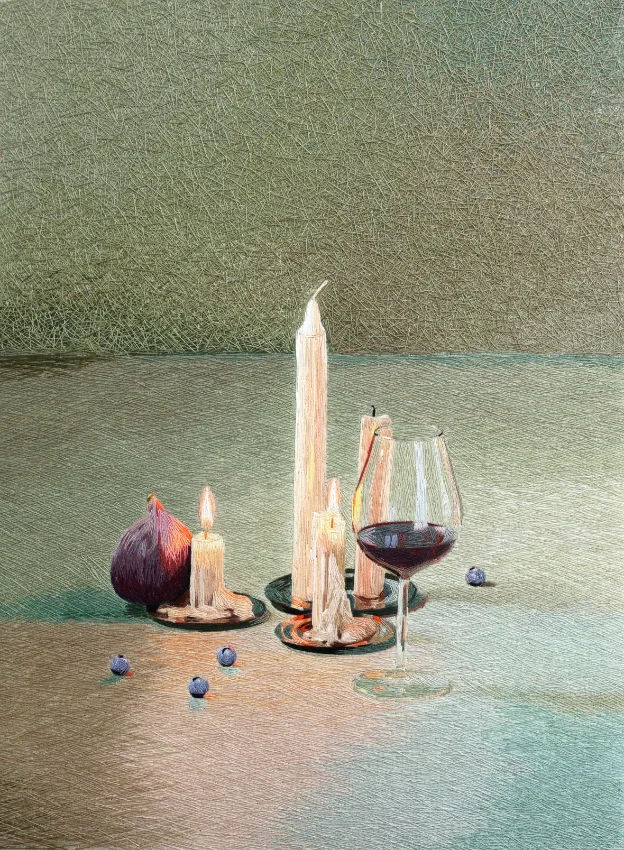
Can you talk us through your design and make processes?
Each new project has its own process but it usually starts with me taking a photograph, then I work with photoshop a lot. This is the phase were I try to understand what it is that I want to create and say and the embroidery starts… It sometimes takes months to complete a piece but I’m the most at peace when I embroider, I love the meditative effect it has on me.
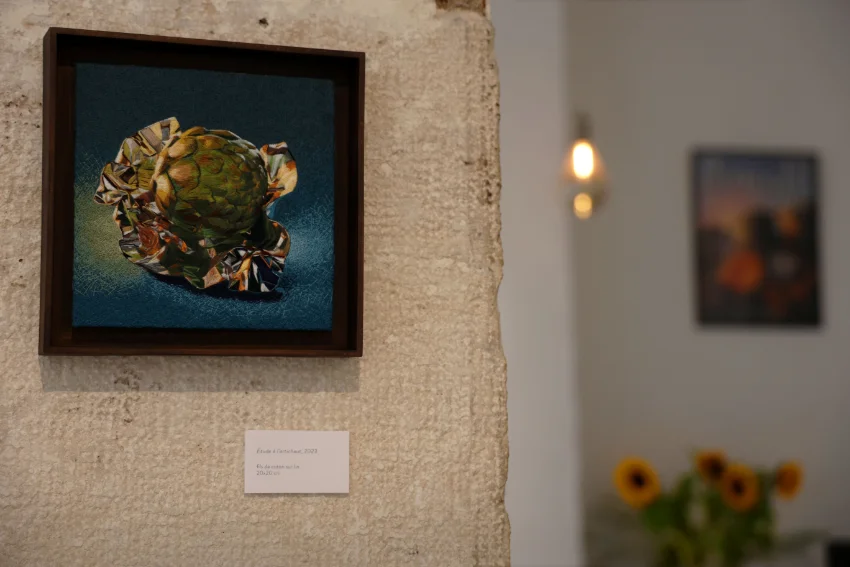
Do you have any advice for our students and followers regarding a professional career in textiles?
I would advise everyone to experiment until you find your own personal voice. Learn from what has been done before and embrace it. Go to museums and movies. Textiles is so versatile and quite on trend now. That’s a wonderful opportunity, not to be missed.
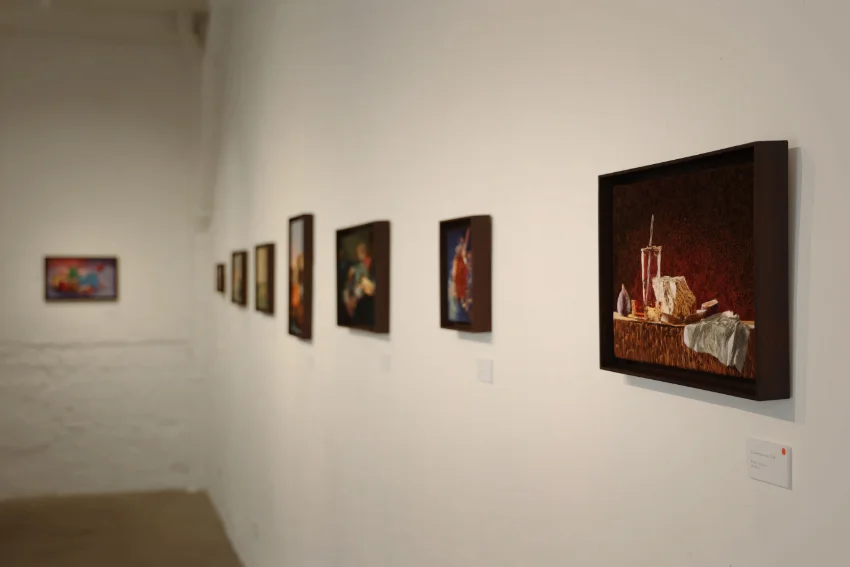
Key Takeaways
From Cécile Davidovici
Exploration of Mediums: Davidovici discovered her passion for embroidery after exploring various mediums following a significant life event. This highlights the importance of experimentation and openness to new artistic avenues.
Collaboration and Inspiration: Collaborating with other artists, such as David Ctiborsky, can lead to innovative projects. The “La vie silencieuse” series, inspired by Giorgio Morandi’s work, showcases how collaboration and inspiration from other artists can enrich one’s own artistic journey.
Personal Journey and Technique: Davidovici’s journey in embroidery was largely self-taught, stemming from childhood memories of sewing with her grandmother. Her technique developed through experimentation and playing with the medium, highlighting the importance of personal exploration in developing one’s style.
Subject Matter and Representation: Davidovici’s focus on realistic representations of the human form, particularly hands and faces, reflects her fascination with the complexity and diversity of skin tones. This encourages artists to explore subjects they are passionate about and to represent them authentically.
Professional Advice: Davidovici advises aspiring textile artists to experiment until they find their own voice, drawing inspiration from past works while embracing their individuality. She highlights the versatility of textiles and encourages artists to explore various influences, such as museums and films.


